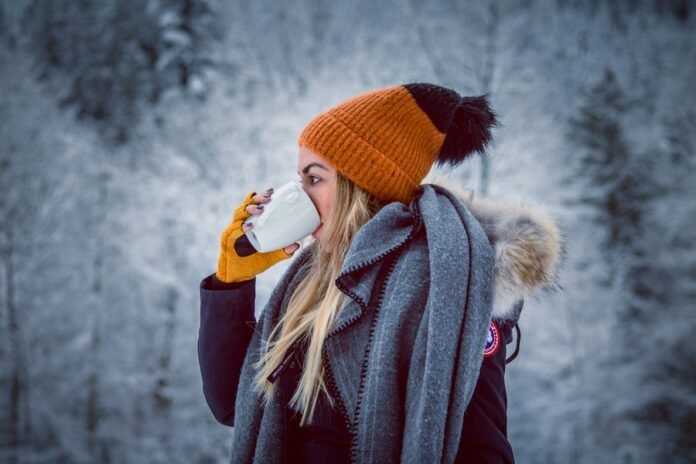Winters is probably one of the most loved seasons for most of us. The cozy and warm feelings of winters are bliss to live. But amidst all its pros, winters also come up with some disadvantages. One of the most common is dehydration.
Dehydration occurs when you lose more fluids than you consume and the body gets devoid of the optimum amount of water. Winter dehydration is a quite common phenomenon experienced by many people.
Winter dehydration comes with many kinds of symptoms and outcomes which can negatively affect our health.
For example, in winters, our skin goes through many changes that require utmost attention and care to prevent it from being dull and dry. That is why the market in winters is flooded with different kinds of hydrator and moisturizers depending upon what your skin needs.
This article is a detailed insight into the notions of winter hydration and why we feel more dehydrated in winters.
Why do you get more dehydrated in winters?
Dehydration is more of a threat in the winter since most people are unaware that their bodies are losing fluids. Dehydration can occur more quickly than you might imagine when this is accompanied by a decrease in thirst.
There are many reasons why you might feel dehydrated in winter. Some of the very common ones are-
More respiratory water loss
Respiratory water loss is a very common phenomenon in winters. When it’s cold outside, you can see your breath because water is leaving your body and evaporating. If the air is dry, you tend to lose more water. Also, if you exercise more during winters, you tend to breathe more which again causes more vapor production.
Reduced thirst
In winters, we all get the feeling of not consuming the optimum amount of water because we don’t even feel that thirsty. This happens due to some psychological shifts happening inside our bodies. Another simple reason is since your environment is already cold, you technically do not crave cold or even room temperature water.
Less perspiration or sweating
In summers, due to the hot and humid climate, we sweat more and the sweat doesn’t evaporate off easily. Contrastingly, in winters, the sweat evaporates in a more effective and quicker way. So, your body gets dehydrated due to the excess sweat evaporation.
Signs and symptoms of winter dehydration
Dehydration, in general, has many symptoms. These differ from person to person and it is advised to get alert at the right time, even when you feel slight discomfort or if you start showing certain signs that you might think are off.
Here are some common signs of dehydration-
Feeling of thirst
When you feel thirsty, you immediately feel the need to drink a lot of water. In winters, since the water intake is low, you feel more thirsty.
Less urinating or sweating
The average person urinates at least six to ten times each day and sweats profusely after severe exercise. If this does not occur, it is likely that you need to drink more water. Urinating or sweating loss is common in winters due to less water consumption.
Dry mouth
When the mouth does not produce enough saliva, one might experience a dry mouth. Hydration is important for saliva production and thus many people suffer from dry mouth in winters due to dehydration.
Headache
Dehydration headaches occur when the brain contracts due to a lack of fluid, causing discomfort as the brain pulls away from the skull.
Dark-colored urine
Dark yellow-colored urine is one of the most precise indicators you might be dehydrated. So, if you experience this, start increasing your water consumption. The urine must be of light yellow color.
Ways to prevent winter dehydration
Winter dehydration is a common and normal pattern that you may experience during this season. But preventing this issue is very important since it can cause many health complications in the long run.
Being prepared is the greatest way to avoid dehydration in the cold, Make sure you stay hydrated throughout the day and plan to replace any fluids you lose throughout your workout.
Here are some quick tips by which you can avoid winter dehydration and keep yourself energized and active throughout the season.
Take care of your water intake
Every person requires different amounts of water to be consumed in a day to maintain proper fluid balance. However, in general, it is recommended that every person must drink at least 8-10 glasses of water every day.
Consume lots of fruits and vegetables
Fruits and vegetables contain lots of water and thus, they turn out to be an excellent source of hydration. Water-rich foods like apples, celery, lettuce, and cucumber can help you stay hydrated. It is advised to consume at least 2-3 servings of fruits and vegetables every day.
Limit or avoid alcohol or caffeine associated drinks
Alcohol and other caffeinated drinks are diuretics. Thus, they cause dehydration. You need to make sure that you limit their intake or completely avoid them in order to prevent yourself from getting dehydrated. In general, 1-2 pegs daily is the accepted value of alcohol but it’s a better notion to avoid consumption.
The right clothing is important
Don’t wear too much warm clothing. Layering can assist you to control your body temperature and reduce perspiration water loss. That is why it is suggested to look after how many layers you put on yourself in winters.
Bottom Line
Dehydration in winters is common but it isn’t something that cannot be treated or prevented. The right efforts in eh right direction are important. Take care of your water intake. Do not drink water only when you are thirsty. Instead, make it a habit to sip on water regularly. Also, look for other sources of hydration other than water like fruits, vegetables, detox drinks, electrolyte drinks, etc.























